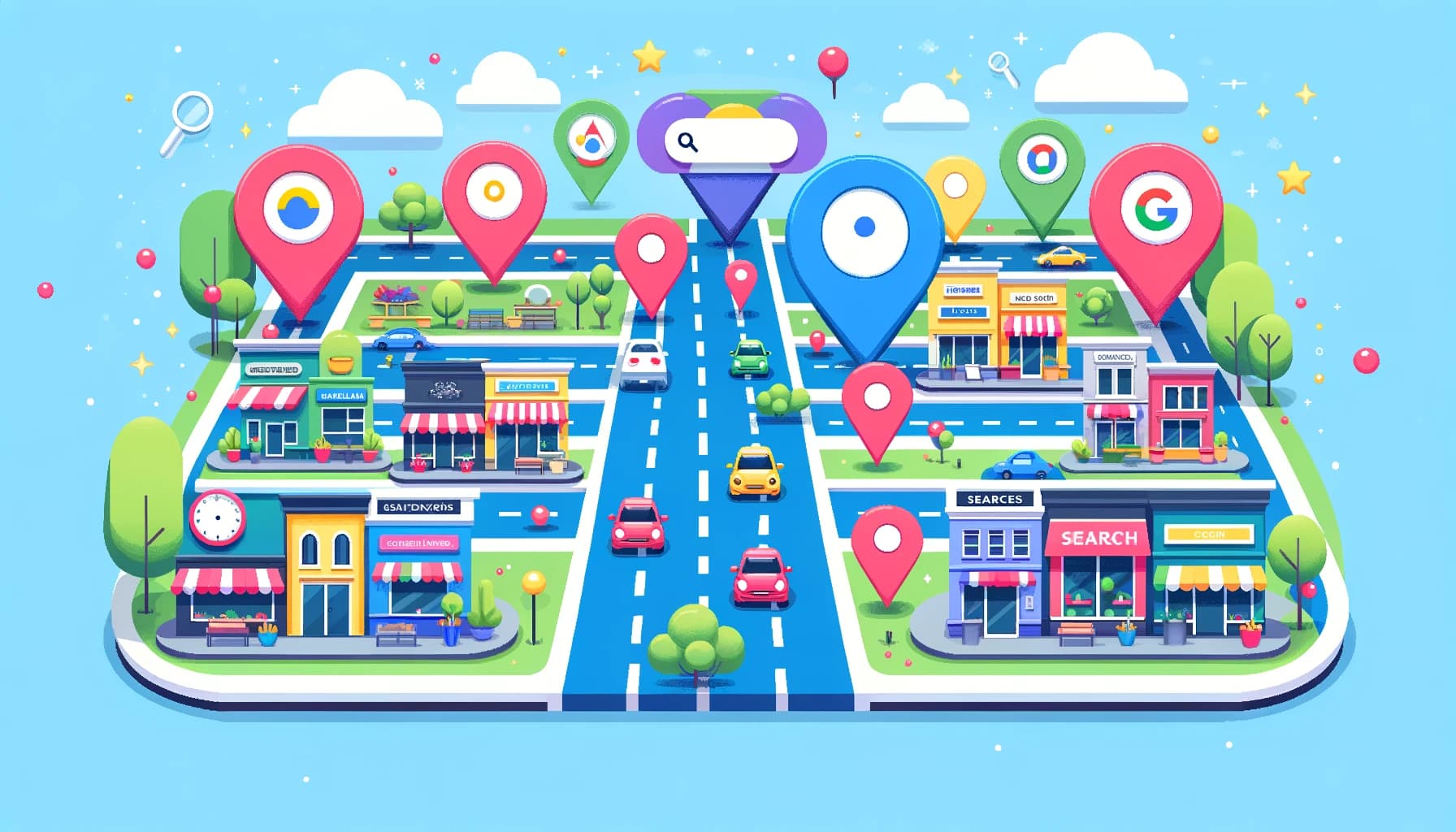Summary
Local SEO helps businesses rank higher in local search results.
Optimize your Google Business Profile and website to attract nearby
customers. Essential for driving more foot traffic and sales.
Want more customers walking through your door? Local SEO gets your business found when people search for what you offer nearby.
If you're not showing up when someone searches "plumber near me" or "best pizza in Chicago," you're losing customers to competitors. Local SEO fixes that.
This guide shows you exactly:
- What local SEO is and why it matters
- How local SEO ranking works
- A step-by-step process to get started today
- Resources to help you rank higher
What is Local SEO?
Local SEO is optimizing your online presence to attract customers searching for businesses near them.
When someone searches "plumber Denver" or "pizza restaurant Chicago," you want your business to show up first. Local SEO makes that happen by improving your visibility in local search results.
You optimize your Google Business Profile, website, and online listings so search engines know where you are and what you offer.
Why You Need Local SEO
Here's why optimizing for local searches matters:
How Local SEO Ranking Works
Google ranks local businesses based on three main factors:
- Proximity: How close you are to the searcher
- Relevance: How well your business matches what they're searching for
- Prominence: Your authority and trustworthiness online
The most important ranking signals are:
- Google Business Profile signals (32-35% of ranking factors)
- Reviews (19-20%)
- On-page optimization (14-15%)
- Behavioral signals (9-10%)
- Links and citations (8-10%)
How to Do Local SEO: Step-by-Step
Follow these steps to improve your local search rankings:
Your Google Business Profile is the most important ranking factor (32-35%). Complete every field:
- Business information: Name, address, phone number (NAP) must be accurate and consistent
- Categories: Choose your primary category carefully, then add relevant secondary categories
- Attributes: Add attributes like "appointment required," "wheelchair accessible," etc.
- Photos and videos: Add high-quality photos of your business, products, and team
- Business hours: Keep hours updated, including special hours for holidays
- Description: Write a clear description with local keywords
- Regular posts: Post updates, offers, and events regularly to show you're active
Get verified to unlock all features and improve your rankings.
Reviews account for 19-20% of local ranking factors. 75% of consumers read at least 4 reviews before making a decision.
- Encourage reviews: Ask satisfied customers to leave reviews
- Respond to every review: Show you care by responding to both positive and negative reviews
- Focus on recency: Recent reviews carry more weight in rankings
- Get detailed reviews: Reviews with specific details about your service perform better
According to BrightLocal, 61% of mobile users are more likely to contact a local business if they have a mobile site. Use Google's Mobile-Friendly Test to check.
Find what local keywords your competitors rank for using tools like SEMrush and Ahrefs. Target:
- Geo-modified keywords: "plumber Denver," "pizza restaurant Chicago"
- "Near me" searches: "hair salon near me"
- Service + location: "best dentist in [city]"
Update your website content to target local keywords:
- Create location pages: Build dedicated pages for each location if you have multiple
- Include NAP: Display your business name, address, and phone number prominently
- Add local keywords: Use local keywords in titles, headings, and content naturally
- Add schema markup: Use LocalBusiness schema to help Google understand your business
- Embed Google Map: Show your location with an embedded map
- Page speed: Fast-loading pages rank better. Use Google PageSpeed Insights to check
Get listed on directories with consistent NAP information:
- Major directories: Yelp, Foursquare, Bing Places, Apple Maps
- Industry-specific: Find niche directories for your industry [Whitespark]
- NAP consistency: Your name, address, and phone must match exactly everywhere
62% of consumers avoid businesses with incorrect online information, so accuracy matters.
Build authority with local backlinks:
8. Create Local Content
Publish content that targets local searches:
- Service pages: Create pages for each service you offer in each location
- Local blog posts: Write about local events, news, or topics relevant to your area
- FAQs: Answer common local questions with structured data
Monitor your performance:
- Google Analytics: Track traffic and conversions from local keywords
- Google Business Profile Insights: See how many people found you, called, or visited
- Rank tracking: Monitor your local pack and organic rankings regularly
- Review monitoring: Track review volume and ratings over time
Additional Local SEO Resources



